During these trying times, it’s easy to justify feeling anxious. For many, that feeling is caused by worry. And, worrying leads to more anxiety!
1. Practicing meditation
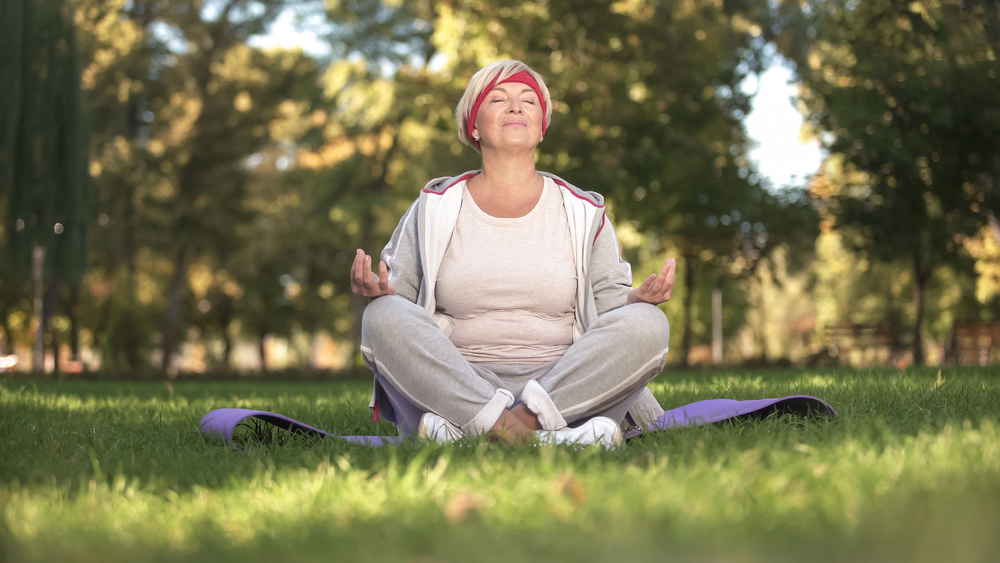 Meditation is a form of relaxation therapy that has been proven to reduce anxiety and worry. It is a great way to relax and de-stress. It helps whether you’re dealing with everyday stressors … or bigger issues.
Meditation is a form of relaxation therapy that has been proven to reduce anxiety and worry. It is a great way to relax and de-stress. It helps whether you’re dealing with everyday stressors … or bigger issues.
The goal of meditation is to focus on one thing at a time, such as breathing, counting, or repeating a mantra. This practice can help you learn how to control your thoughts and feelings.
There are several types of meditation, such as mindfulness, yoga, tai chi, qi gong, and transcendental meditation. All of these methods help you focus on the present moment and clear your mind.
Start by meditating daily for just 5 minutes. You don’t have to do anything special; just sit quietly and focus on your breath.
2. Deep breathing
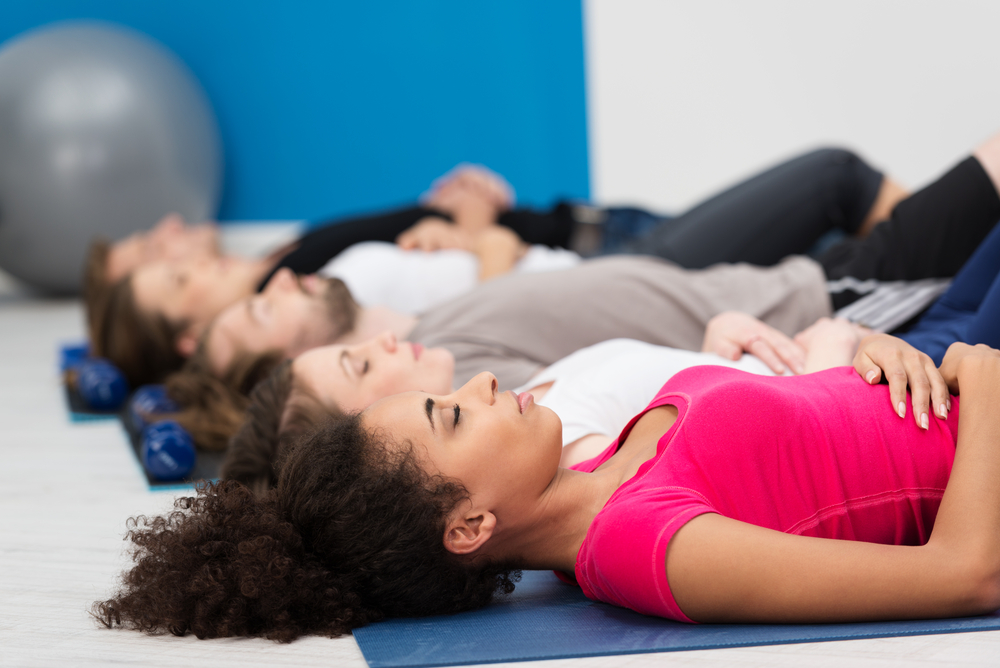 Breathing exercises are great ways to calm your mind and body. When you breathe deeply, oxygen enters your bloodstream and helps you feel relaxed. This is why yoga practitioners often recommend deep breathing techniques for calming down.
Breathing exercises are great ways to calm your mind and body. When you breathe deeply, oxygen enters your bloodstream and helps you feel relaxed. This is why yoga practitioners often recommend deep breathing techniques for calming down.
When you feel anxious, take some deep breaths. Focus on your breathing and let go of any negative thoughts that may arise.
To start, take a few slow breaths in through your nose and out through your mouth. Continue … slowing the inhale and exhale even more. Repeat this process until you feel calmer.
3. Exercising
 Exercise has been proven to reduce anxiety and worry. When you exercise, your brain releases endorphins that make you feel good. Endorphins are chemicals that produce feelings of happiness and well-being. They are released naturally through physical activity.
Exercise has been proven to reduce anxiety and worry. When you exercise, your brain releases endorphins that make you feel good. Endorphins are chemicals that produce feelings of happiness and well-being. They are released naturally through physical activity.
If you’re feeling stressed out, try going for a run or working out at the gym. You should get 30 minutes of moderate exercise every day. Moderate exercise includes walking briskly, bicycling, dancing, swimming, jogging, or playing sports. If you’re new to exercising, it’s best to start with low-impact activities like walking or biking.
4. Focusing on self-care
 Taking care of yourself mentally and physically will help you stay calm and focused during stressful times. Self-care helps reduce stress because it allows you to focus on yourself instead of worrying about everything … and everyone … else.
Taking care of yourself mentally and physically will help you stay calm and focused during stressful times. Self-care helps reduce stress because it allows you to focus on yourself instead of worrying about everything … and everyone … else.
When you care for yourself, you feel better and happier. When you do things for yourself, your mood will brighten and life becomes easier. Self-care also helps you be more productive at work because when you’re relaxed, you’ll be able to think clearly and solve problems faster.
When you feel stressed out, you need to do something for yourself to relax. Some simple self-care activities include going for a walk, taking a bath, listening to music, or doing anything that makes you feel better.
Other self-care activities include eating healthy food, exercising, getting enough sleep, taking breaks from work, and having fun. These activities help you feel better about yourself and your life. For even more ideas for self-care, you will appreciate this post with suggestions for Self-Care Activities You Can Begin Today.
5. Sleeping
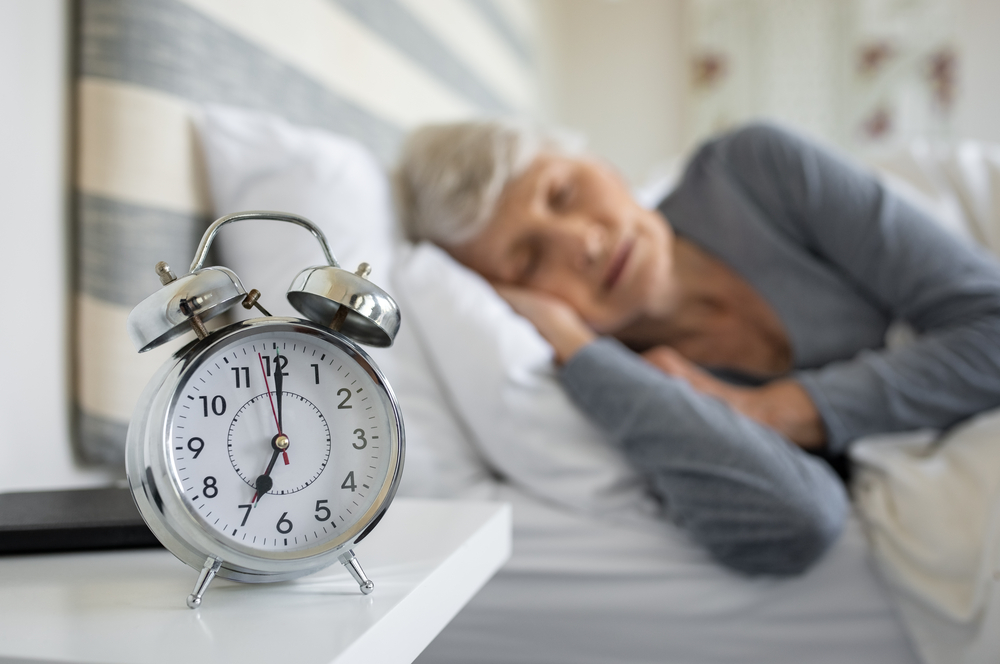 Sleep is a great way to reduce anxiety and worry because when you sleep, your body repairs itself and restores your energy levels. When you don’t get enough sleep, you don’t have the energy to deal with even the basic activities of daily living.
Sleep is a great way to reduce anxiety and worry because when you sleep, your body repairs itself and restores your energy levels. When you don’t get enough sleep, you don’t have the energy to deal with even the basic activities of daily living.
You will be less productive at work and your chances of making mistakes increases. This just compounds the problem.
When you’re asleep, your body also produces hormones called “sleep hormones” which help you feel calm and relaxed. These hormones remain active for about 8 hours after waking up. This means that sleeping helps you better deal with stressful situations.
6. Laughing
 Laughter is one of the most powerful tools for relieving stress. It is indeed “the best medicine.”
Laughter is one of the most powerful tools for relieving stress. It is indeed “the best medicine.”
Laughter is another way to boost serotonin. Not only does it promote sleep … it also improves your mood. Low levels of serotonin have been linked to depression, anxiety, and insomnia.
When you laugh, your serotonin levels increase, which reduces anxiety. It also lowers blood pressure and heart rate, making you feel less tense.
Laughter also releases endorphins into our bodies. Endorphins are chemicals produced naturally in our brains that give us feelings of happiness and relaxation. They also help us deal with pain and anxiety.
Laughter is contagious and it often makes people feel better. Find something funny and laugh out loud!
7. Eating healthy
 Eating healthy reduces stress and anxiety because it helps you feel better about yourself. When you eat well, you feel satisfied and energized. This makes you less likely to overeat when you’re stressed out, which keeps you from gaining weight. Also, when you eat healthily, you’ll naturally want to be more active, which means you’ll burn calories and lose weight.
Eating healthy reduces stress and anxiety because it helps you feel better about yourself. When you eat well, you feel satisfied and energized. This makes you less likely to overeat when you’re stressed out, which keeps you from gaining weight. Also, when you eat healthily, you’ll naturally want to be more active, which means you’ll burn calories and lose weight.
Healthy foods are unprocessed and free of chemicals. These foods contain high levels of vitamins, minerals, fiber, and other nutrients that help keep you healthy. They also provide satiety, which means they give you energy without making you feel hungry.
8. Accepting you cannot control everything
 Acceptance helps you reduce stress by helping you accept things for what they are. When you accept something for what it is, you stop worrying about it. When you accept something, you stop fighting against it.
Acceptance helps you reduce stress by helping you accept things for what they are. When you accept something for what it is, you stop worrying about it. When you accept something, you stop fighting against it.
9. Focusing on what you can control
 When you focus on what you can control, you feel less stressed and anxious about things outside your control. This helps you become more productive and effective at work. Focusing on what you can control also reduces your reliance on others, which makes you happier and healthier.
When you focus on what you can control, you feel less stressed and anxious about things outside your control. This helps you become more productive and effective at work. Focusing on what you can control also reduces your reliance on others, which makes you happier and healthier.
Focusing on what you can control reduces stress and anxiety because you know that you have some control over things such as your work environment, finances, and relationships. When you focus on what you cannot control, you tend to feel anxious about the uncertainty.
If you worry too much about things that you cannot change, then you will feel anxious. Worry and anxiety are like “2 peas in a pod.” They are often found together.
10. Talking to someone
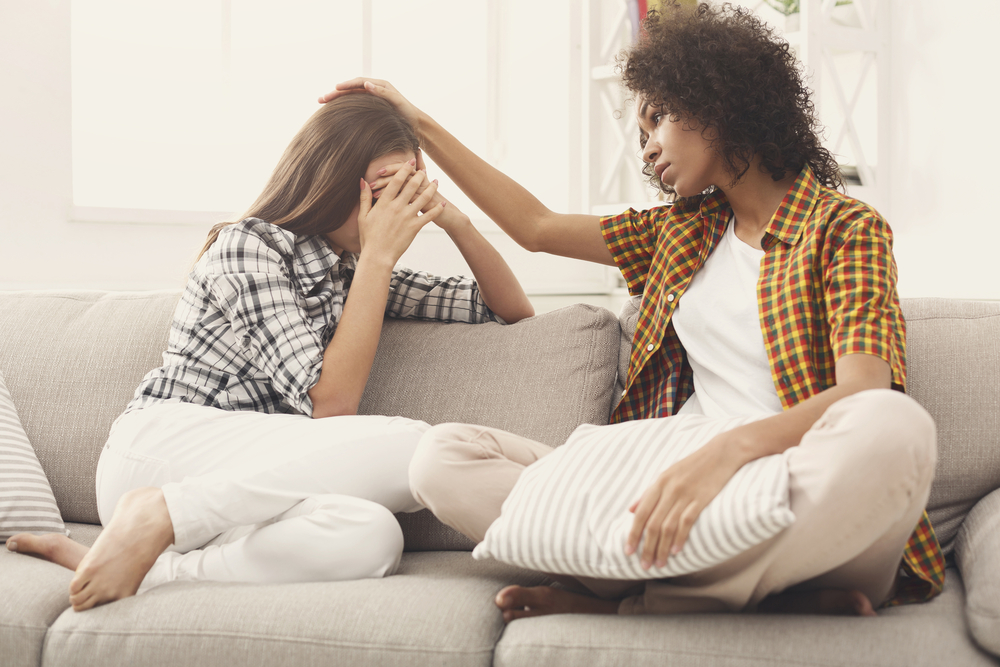 Talking to someone reduces stress and anxiety because when you talk about your feelings, you feel better. This is why psychologists recommend talk therapy for those who suffer from depression, anxiety, and other mental health issues.
Talking to someone reduces stress and anxiety because when you talk about your feelings, you feel better. This is why psychologists recommend talk therapy for those who suffer from depression, anxiety, and other mental health issues.
11. Being present
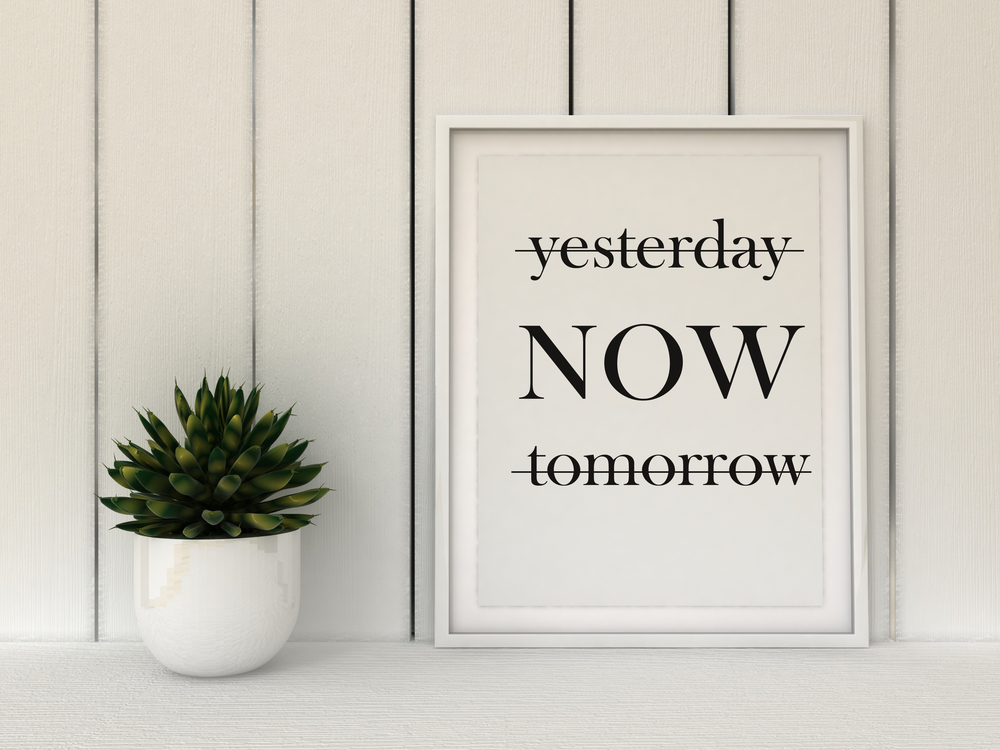 Being present helps reduce anxiety and stress because it allows us to focus on what we want to do instead of worrying about what others think of us. When we are present, we feel less anxious and stressed because our attention is focused on the task at hand.
Being present helps reduce anxiety and stress because it allows us to focus on what we want to do instead of worrying about what others think of us. When we are present, we feel less anxious and stressed because our attention is focused on the task at hand.
When you are present, you are aware of your surroundings and what is happening around you. Your mind is free from worries about the future. This is why meditation is such a powerful tool for reducing anxiety and stress … it is designed to help us be present and in the moment.
When you worry about the future, you tend to focus on what might go wrong, which causes you to feel anxious and stressed. However, when you are present, you are able to be aware of the here and now, which allows you to live in the moment. This reduces your anxiety and stress levels.
12. Sharing your worries with other people
 When you share your worries with others, you feel less anxious about them. This is because when you share your life with friends, they often reassure you that everything will be fine. They may also offer advice, which may provide some new insight. You will also feel less alone and more confident about your abilities to cope with whatever life throws at you.
When you share your worries with others, you feel less anxious about them. This is because when you share your life with friends, they often reassure you that everything will be fine. They may also offer advice, which may provide some new insight. You will also feel less alone and more confident about your abilities to cope with whatever life throws at you.
Sharing your worries with others also makes you feel less anxious and stressed because when you talk about your worries and anxieties, you often learn that they are common and normal.
13. Keeping an emotions journal
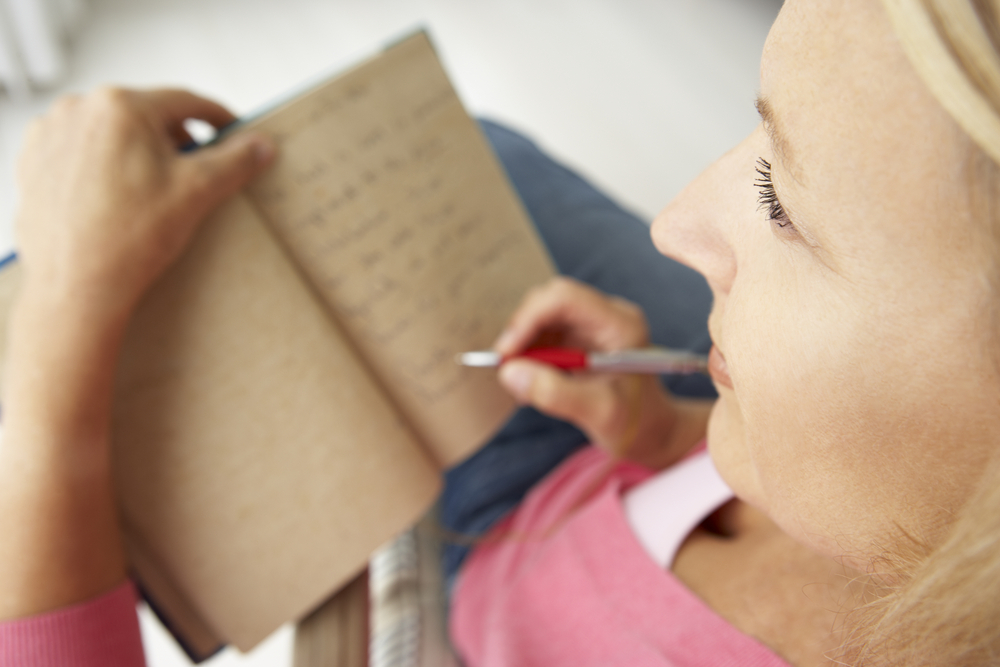 An emotions journal is a tool used to help you understand what makes you feel happy, sad, angry, excited, etc. It is a great way to relieve stress. When you write down your thoughts, feelings, and emotions, they become less overwhelming.
An emotions journal is a tool used to help you understand what makes you feel happy, sad, angry, excited, etc. It is a great way to relieve stress. When you write down your thoughts, feelings, and emotions, they become less overwhelming.
Keeping an emotions journal helps you understand yourself better and learn what triggers your emotions. By understanding your emotions, you can control them and avoid negative emotions such as anger, frustration, and fear. This way, you can be happier and less stressed out. Once you understand your feelings and what triggers them, it’s easier to develop ways to cope with them.
The best way to start journaling is to write down what you feel when something happens. For example, if someone says something mean or rude to you, write down what you feel. Try not to judge yourself or criticize yourself. Just write down how you felt.
After that, ask yourself:
- What did I say or do?
- Did I act like this was normal?
- Was it justified?
These questions will help you analyze your emotions.
14. Doing a body scan
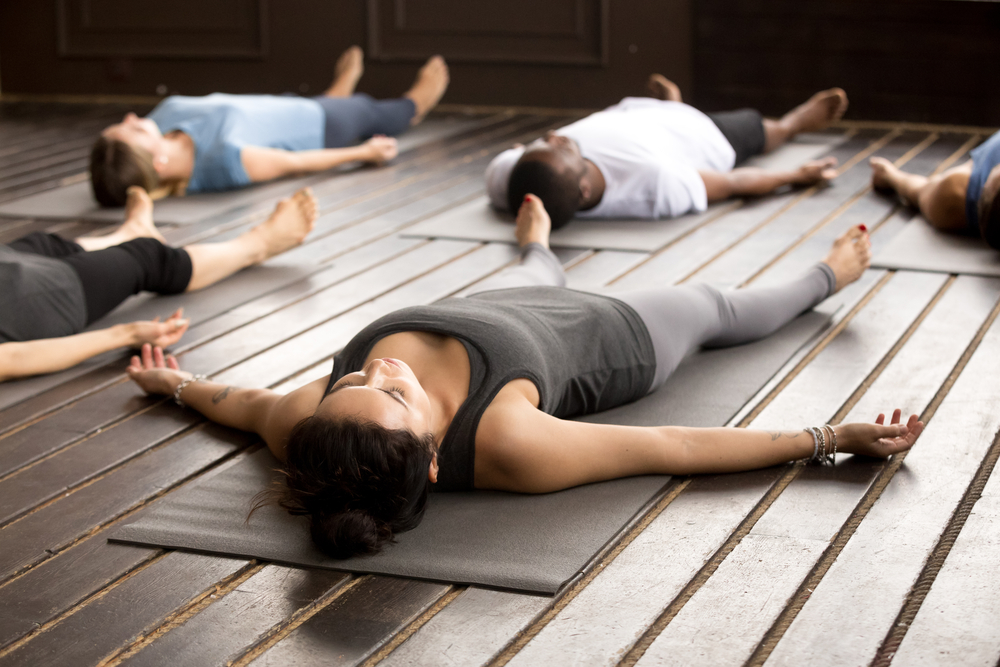 A body scan meditation is a form of mindfulness meditation where you focus on your breath while relaxing all of your muscles. This technique helps you relax and reduces your stress level. The goal of a body scan meditation is to clear your mind of negative thoughts and emotions. You will also learn to be mindful of your thoughts and feelings, which reduces stress and anxiety.
A body scan meditation is a form of mindfulness meditation where you focus on your breath while relaxing all of your muscles. This technique helps you relax and reduces your stress level. The goal of a body scan meditation is to clear your mind of negative thoughts and emotions. You will also learn to be mindful of your thoughts and feelings, which reduces stress and anxiety.
The best part about the body scan meditation technique is that it doesn’t require any equipment. All you need is a comfortable place to lie down, and some quiet time.
Start by lying down somewhere where you won’t be disturbed for at least 10 minutes. Close your eyes and breathe deeply for a couple of minutes. Then focus on your breathing, and notice what happens when you inhale and exhale. As you continue to practice, try to become aware of all the sensations in your body.
When you’re ready, open your eyes.
I created a meditation that is included in my SAGE Advice book. It’s called the Rotation of Consciousness. We use it at the end of Mindful Movement classes as part of the yoga nidra practice. It’s my favorite part of class!
15. Taking time off
 If you find yourself feeling overwhelmed by stress or anxiety, take a break. You may not realize how stressed you really are until you take some time away from your daily routine.
If you find yourself feeling overwhelmed by stress or anxiety, take a break. You may not realize how stressed you really are until you take some time away from your daily routine.
Go for a walk, call a friend, or just relax. Take time off every day to recharge your batteries so that you can come back ready to tackle whatever comes your way. If you don’t have any spare time, you can always make time for yourself during lunch breaks or after class.
I recharge my batteries with a walk. This video might provide some inspiration.
16. Practicing visualization
 Visualization is another way to relieve stress. By imagining yourself happy, you can create an imaginary world where you feel relaxed and calm. It’s like taking a vacation from your stressful life!
Visualization is another way to relieve stress. By imagining yourself happy, you can create an imaginary world where you feel relaxed and calm. It’s like taking a vacation from your stressful life!
Visualization helps reduce anxiety and stress because it allows us to imagine what we want to happen. When we visualize something, our brain sends signals to our body which causes it to prepare for action. This process is called “preparation.” Preparation makes us feel better because we know what to do when the situation arises.
Visualization also allows you to imagine yourself in a situation where you feel comfortable. This technique works best when you use images from your imagination rather than real-life situations. For example, if you want to visualize yourself relaxing at home, you should think about what you would do if you were at home. If you are stressed out at work, you should try to picture yourself at home.
17. Seeking professional help
 Seeking professional help from a therapist or psychologist can be a great way to reduce stress. We mentioned the importance of having someone to talk to and a trained therapist can provide insight into how to deal with your particular stressful situations and teach you coping skills. They can also help you identify what triggers your anxiety and depression.
Seeking professional help from a therapist or psychologist can be a great way to reduce stress. We mentioned the importance of having someone to talk to and a trained therapist can provide insight into how to deal with your particular stressful situations and teach you coping skills. They can also help you identify what triggers your anxiety and depression.
- improved mood
- increased productivity
- reduced anxiety
- … and better sleep.
Why It’s Important To Pay Attention If You’re Experiencing Chronic Worry and Anxiety
It is important to pay attention if you are experiencing worry or anxiety regularly. These feelings are normal but they can become overwhelming. Experiencing worry or anxiety regularly are often signs that something is wrong with your brain. In fact, some people who are chronically worried or anxious may be at greater risk for depression and other mental illnesses.
When you are experiencing worry or anxiety, you may be feeling overwhelmed and unable to cope with what is happening in your life. It is important to learn how to manage these experiences. Hopefully, this list of ways to reduce anxiety and worry gives you some ideas that you can use the next time you find yourself worrying or feeling anxious.

